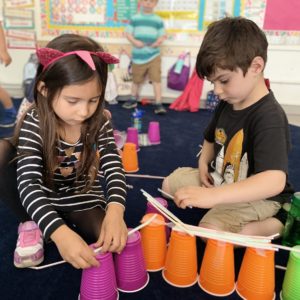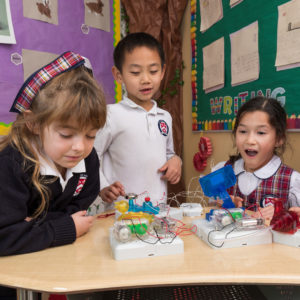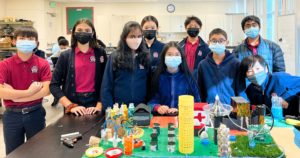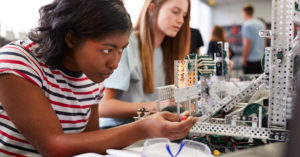- View All
- Topics
- Search
Topics
- 25th Anniversary
- Alumni
- Book Recommendations
- Child Tax Credit
- Coding
- College Admissions
- College Counseling
- Community
- Cultural Learning
- Curriculum
- Distance Learning
- Earth Day
- Engineering
- Fundraising
- Giving
- graduates
- High School
- International Women's Day
- Mandarin Bilingual Preschool
- Mandarin Language Programs
- Mindful Parenting
- Mindfulness
- National Women's History Month
- Parenting
- Parenting Support
- Poetry
- Potty Training
- Preparing for College
- Preparing for Preschool
- Reading
- STEAM
- STEM
- Student Awards
- Student Spotlight
- Teacher
- Teacher Awards
Blog Archive
- 2025 (1)
-
2024 (6)
- December (1)
- May (1)
-
March (3)
- Stratford Preparatory Blackford Middle and High School Students Recognized at Multiple Competitions and Events in March
- Stratford Fremont and Pleasanton Middle School Students Bring Home 46 Science Fair Awards at the Alameda Science and Engineering Fair!
- Stratford Mandarin Language Students Win Multiple National Chinese Culture Competitions!
- January (1)
-
2023 (5)
- September (1)
- June (1)
- April (1)
- February (2)
-
2022 (11)
- November (1)
- August (1)
- July (1)
- June (1)
- May (1)
- March (2)
- February (3)
- January (1)
-
2021 (23)
- December (2)
- November (1)
- October (2)
- September (1)
- August (2)
- July (2)
- June (4)
- May (1)
- April (3)
-
March (4)
- What Families Need to Know About Child Care Benefits in the “American Rescue Plan Act”
- Inside Out: Fostering Emotional Intelligence (EI) in your Child
- Celebrating Women’s Contributions to History One Book at a Time
- Stratford School Congratulates Our 2021 Future City Engineering Competition Participants and Winners!
- February (1)
-
2020 (9)
- December (1)
- September (1)
- August (1)
- May (1)
- April (3)
- March (2)


E is for Engineering! Stratford’s Engineering Curriculum Takes Students to the Next Level in STEM/STEAM Education
Engineering, the all-important “E” in STEM and STEAM education – in this new age of technology, a robust engineering curriculum is more essential than ever. At Stratford School, our engineering curriculum is designed to prepare our students to meet the unique challenges of the future armed with a solid engineering foundation from which they can build upon, whether they choose to continue their studies in any of the many engineering specialties that exist today or use those critical engineering principles to solve complex problems and improve systems in any field they decide to pursue.
Engineers develop new technologies or improve existing ones to increase their benefits, decrease known risks, and meet societal demands. They ask questions, define problems, plan, investigate, construct explanations, and design solutions (Source: Next Generation Science Standards). Children are naturally curious. They are eager to learn the “how and why” of everything: from “why does a beaver build a dam” to “how does a windmill work”? We encourage our curious and budding engineers of the future to understand the answers to these questions through hands-on engineering projects embedded in our preschool to high school science and engineering curriculum. Critical thinking, innovation, collaboration, and communication skills are intricately woven into the topics that students learn in their Next Generation Science Standards (NGSS) aligned science curriculum.
Starting Engineering Concepts Early
 Early learners in our preschool and pre-kindergarten love working with their hands! You can hear the exciting sounds and playful investigations in the classrooms during a science unit on–ramps and pathways. What might seem like simple play is actually quite complex, as children tackle big ideas around energy, force, and motion. After exploring the relationship between materials, the learning culminates in a design challenge: build a system that a small marble can move through. Our early engineers eagerly build, test, and try again until they achieve success together. In addition to feeling a sense of accomplishment, the children begin to understand how mistakes are opportunities to learn–a lesson for a lifetime!
Early learners in our preschool and pre-kindergarten love working with their hands! You can hear the exciting sounds and playful investigations in the classrooms during a science unit on–ramps and pathways. What might seem like simple play is actually quite complex, as children tackle big ideas around energy, force, and motion. After exploring the relationship between materials, the learning culminates in a design challenge: build a system that a small marble can move through. Our early engineers eagerly build, test, and try again until they achieve success together. In addition to feeling a sense of accomplishment, the children begin to understand how mistakes are opportunities to learn–a lesson for a lifetime!
Engineering = Problem Solving
After understanding the science behind energy transfers through hands-on activities, elementary students design a device that transforms energy to solve a problem. For example, what sort of device can be developed that can heat food in case of a power outage, or what device can be helpful for a person with auditory challenges to know when there is someone at the door, and the doorbell cannot be heard? Students follow the iterative design process and collaboratively engineer a solution to a problem they might encounter in everyday life.
Designing Solutions for the Future in Middle School
In addition to being integrated into the science curriculum, Engineering is also offered as a choice elective in seventh and eighth grade at Stratford Middle School. Students who take Engineering design a sustainable futuristic city using engineering design principles and participate in the FutureCity Competition every year. Our students have consistently demonstrated innovative thinking in creating physical models of the city using mainly recycled materials. Stratford teams have placed in the top five positions in the past several years. This year’s FutureCity theme was to build a waste-free city based on the principles of a circular economy. Stratford students secured the first position in the regional competition and are moving to the national level. Students worked hard to create a future city that produces zero waste, can accommodate any age or ethnicity, and can ensure the comfort, safety, and convenience of its residents. A summary of the numerous components that make their city unique include the water filtration system, which filters water to be reused, the stacked agriculture farms that mimic natural environments and minimize space use, solar panels, wind turbines, and other examples of renewable energy.
Along with designing cities using the engineering design process, students are also exposed to other facets of engineering like bioengineering and structural engineering in the elective. In bioengineering, students design innovative human shelters inspired and informed by animal structures. After researching the natural attributes of different animal homes and brainstorming ideas, students build small prototypes of the shelters.
To understand the different aspects of civil and mechanical engineering, students work on Tech challenges hosted by the Tech Interactive Museum, San Jose. The challenges often involve designing and building solutions that have practical applications in real-life. One of the students’ projects is “ Ultimate Upcycle,” where they have to repurpose used cardboard to construct a useful life-size device of their choice.
Next Level Engineering in High School
Continuing to build on skills developed in preschool, early, and middle school, Stratford Preparatory High School, opening this fall, has course offerings that will take our students to the next level and engage with the science and engineering of Cleantech and Biotech, directly from within the Physics and Biology courses.
Our intentional focus on Cleantech instills in students a positive impetus and outlook toward managing energy consumption, limiting environmental degradation, and restoring balance in the earth’s various cycles and systems. In Cleantech, students will be involved in theory, research, and laboratory work related to Photovoltaics, Wind, Hydro, and Tidal-wave energy generation. Students will design, build and test scaled models of such renewable-resource-based power generation systems and conduct feasibility studies of large-scale deployment and adoption of such technologies.
energy consumption, limiting environmental degradation, and restoring balance in the earth’s various cycles and systems. In Cleantech, students will be involved in theory, research, and laboratory work related to Photovoltaics, Wind, Hydro, and Tidal-wave energy generation. Students will design, build and test scaled models of such renewable-resource-based power generation systems and conduct feasibility studies of large-scale deployment and adoption of such technologies.
The focus on Biotech is intended to give students the opportunity to engage early with cutting-edge Life Science applications, their manipulative techniques, and their powerful possibilities. As well, provide a thorough examination of its capacity to alter, enhance and transform cellular and molecular-level functioning, and understand its implications for the future of earth’s biological systems, including human ‘evolution.’ In Biotech, students will be involved in theory, research, and laboratory work focusing on techniques such as DNA sequencing and gene-editing (CRISPR), for applications such as ameliorating the effect of, or even preventing, potential genetic disorders in humans, and on a broader scale, preserving earth’s biodiversity and biosystems. Throughout the course, students will also grapple with Bioethics, through case studies taken from current issues.
At Stratford, in addition to developing the skills of creativity, curiosity, and perseverance through the engineering design process, our students learn a growth mindset and treat each challenge as an opportunity for growth and success in the future years!
Written by Stratford School’s Curriculum & Innovation Team
To learn more about Stratford’s innovative curriculum and programs, visit stratfordschools.com.